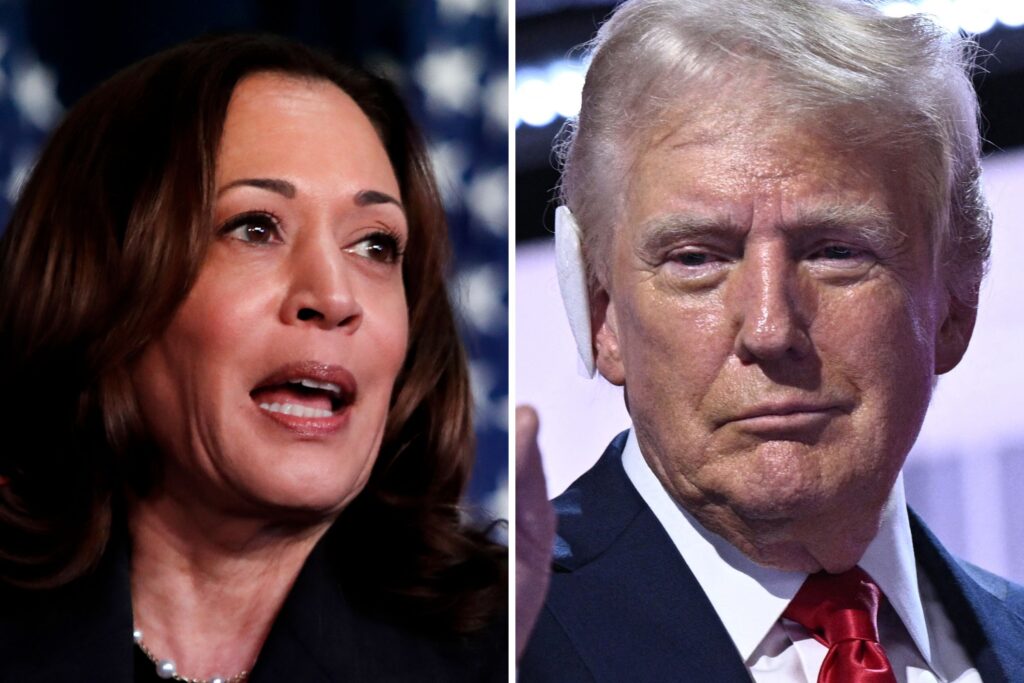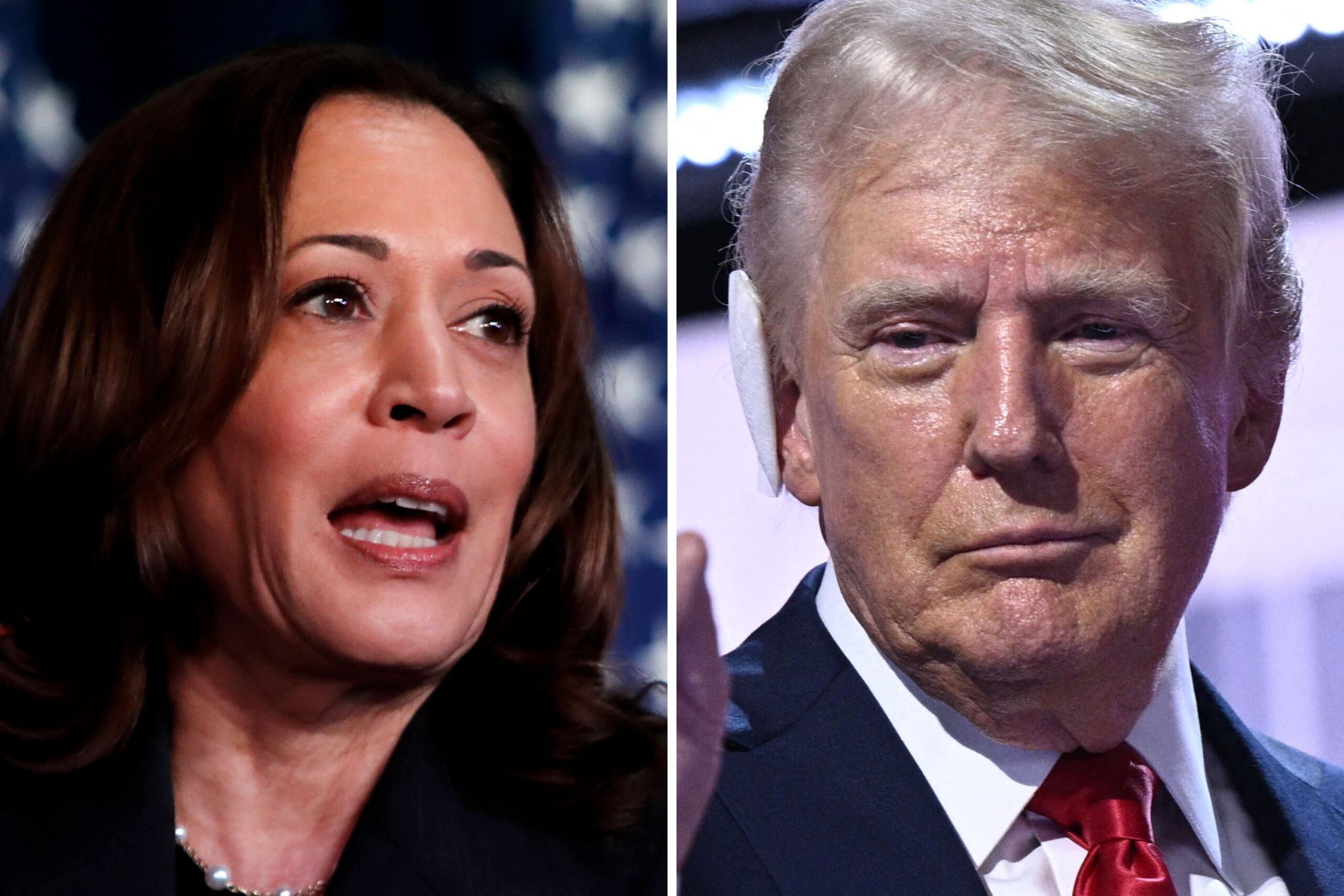The 2024 U.S. Presidential Election: A Nation at a Crossroads
As the United States approaches the 2024 presidential election, the nation finds itself at a pivotal moment in its history. Set to take place on November 5, 2024, this election will determine not just the country’s leadership for the next four years but also the direction of its policies, values, and global standing.

Key Candidates: A Potential Rematch
The 2024 election is poised to be one of the most consequential in recent history, with incumbent President Joe Biden seeking re-election as the Democratic candidate. Biden, who has served as President since 2021, is running on a platform that emphasizes the progress made during his first term, particularly in areas such as economic recovery, healthcare reform, and climate action. His administration has also focused on rebuilding international alliances and addressing domestic challenges like infrastructure and social equity.
On the Republican side, former President Donald Trump has launched a campaign to reclaim the White House. Trump, who served as President from 2017 to 2021, remains a polarizing figure but continues to enjoy strong support within his party. His campaign is centered around themes of economic nationalism, immigration control, and a critique of what he describes as the “radical left” policies of the Biden administration. A Trump-Biden rematch would be a rare event in U.S. political history and is expected to energize both supporters and opponents of each candidate.
In addition to Biden and Trump, several other candidates from both major parties and third parties are expected to play roles in the election. Among Democrats, progressive figures may challenge Biden in the primaries, while Republicans may see other candidates seeking to offer an alternative to Trump’s brand of conservatism. Meanwhile, third-party candidates could emerge, potentially drawing votes from the major parties.
Major Issues at Stake
The 2024 election will likely revolve around several key issues that resonate deeply with the American electorate:
- The Economy: As always, the state of the economy will be a central issue. Voters will be looking at economic growth, job creation, and inflation. Biden’s handling of the economy during his first term, especially in the aftermath of the COVID-19 pandemic, will be under scrutiny. Trump is expected to highlight his economic policies from his first term, particularly tax cuts and deregulation, as a blueprint for future growth.
- Healthcare: Healthcare remains a critical issue, with debates over the future of the Affordable Care Act, prescription drug prices, and healthcare access. Biden’s administration has worked to expand access to healthcare, while Republicans may push for more market-driven solutions.
- Immigration: Immigration policy is likely to be a contentious issue. Trump’s hardline stance on immigration was a hallmark of his first term, and he is expected to continue advocating for stricter border controls and immigration policies. Biden, on the other hand, has attempted to take a more compassionate approach, though his administration has faced criticism from both sides of the political spectrum.
- Climate Change: With growing concern over climate change, this issue is set to be a major talking point. Biden’s administration has rejoined the Paris Agreement and pushed for significant investments in clean energy. Republicans, while increasingly acknowledging the reality of climate change, may focus more on energy independence and the economic impacts of environmental regulations.
- Social Justice: The 2024 election will also be shaped by ongoing debates over racial and social justice. Issues such as police reform, voting rights, and gender equality will likely play a significant role in the campaigns.
- Foreign Policy: The United States’ role on the global stage is another critical issue. Biden’s foreign policy has emphasized rebuilding alliances and a multilateral approach to global challenges. Trump, by contrast, is expected to advocate for an “America First” strategy, focusing on national sovereignty and reducing U.S. involvement in international conflicts.
The State of Democracy
Beyond the specific policy issues, the 2024 election will be a referendum on the state of American democracy itself. The 2020 election was marked by unprecedented challenges, including widespread misinformation, claims of election fraud, and the January 6th Capitol riot. These events have left a lasting impact on the political landscape, with ongoing debates about election integrity, voter access, and the role of social media in shaping public opinion.
Both parties are likely to focus heavily on mobilizing their bases while also trying to win over key swing voters in battleground states. The outcome will depend on voter turnout, campaign strategies, and the ability of candidates to connect with the concerns of everyday Americans.
Conclusion: A Nation Decides Its Future
As the 2024 presidential election approaches, the United States stands at a crossroads. The decisions made by voters in this election will shape the nation’s future on multiple fronts—domestic policy, international relations, and the very nature of American democracy. With so much at stake, the election promises to be a defining moment in the country’s history, one that will be closely watched not only by Americans but by people around the world.
